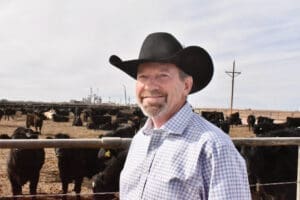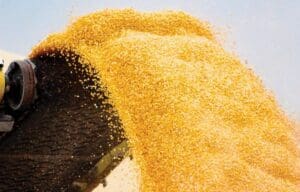By Will Verboven, Contributing Editor
Whenever there is an American presidential election, political anxiety seems to break out in Canada. That’s because, unbeknownst to most Americans, the United States plays a vast, if not dominant, role in the well-being of the Canadian economy. That economy is based on trade with the United States, which has seen our two countries become each other’s largest trading partners (at least most of the time).
However, as large as that trading relationship is with Canada, it only plays a small role in the overall giant U.S. economy. Not so in Canada. A well-worn anecdote describes that relationship well: “It’s like sleeping with an elephant – no matter how friendly, every twitch and grunt is worrisome.” That’s why Canada gets rather anxious about the outcome of the upcoming U.S. election; that outcome will impact the usually harmonious trade relationship but perhaps in different ways.
Undoubtedly, the brain trust of the Canadian Cattle Association (CCA) and National Cattle Feeder’s Association have been deliberating for some time as to the possible trade ramifications of different U.S. election outcomes. Either outcome will bring challenges directly or indirectly, as both countries have their own economic and political interests to pursue. From a gut perspective, the “leave well enough alone” approach would seem to be the commonsense attitude toward the long-established Canada/ United States cattle and beef trade. But alas, as desirable as that may be to the cattle business on both sides of the border, history has shown that cattle/beef trade issues, real or imagined, seem to be a perennial activity that has cost the North American meat industry countless millions to the ultimate detriment of producers at every level.
One of the ramifications of the U.S. election will be the U.S. approach to renewing the Canada/U.S./Mexico free trade agreement (CUSMA as it’s known in Canada). Initial discussions will begin in 2025. There is nothing in the present CUSMA treaty that causes any restrictions on the cattle and beef trade business. That’s a good thing, and if that status is maintained, the industry on both sides would be relieved. What is worrisome is that new environmental standards, cattle methane emission taxes, restrictions on antibiotics, steroids, etc, will be inserted into a new CUSMA treaty. Such politically correct criteria are already in other trade deals, particularly with the European Union.
Readers might scoff at those possibilities with the notion that it could never happen over here. Well, consider this: if the United States votes in Kamala Harris, she will be joining a like-minded CUSMA troika that includes President Claudia Sheinbaum of Mexico and Prime Minster Trudeau of Canada. All three leaders profess to be progressive, liberal and green. I suggest that the North American agriculture industry instinctively knows what a group of leftish green governments could do to the well-being of the commercial livestock business and who could manipulate the CUSMA treaty to achieve some of their save-the-planet goals. In Canada, we are already under the yoke of carbon taxes and plans to restrict the use of nitrogen fertilizers. So be forewarned.
It’s like sleeping with an elephant – no matter how friendly, every twitch and grunt is worrisome.
On the other hand, the present CUSMA treaty went through difficult negotiations under the Trump administration. The cattle and beef trade were not at issue as both the CCA and National Cattlemens Beef Association had similar free-trade positions. What caused acrimony was the Canadian dairy supply management marketing system, which severely controls domestic production and maintains high tariffs and quotas on any dairy imports from the United States. It’s a big sticking point for the United States, and the fear is that, if not resolved, the United States might demand concessions from other Canadian ag exports. The Canadian dairy producers’ lobby is our country’s most politically fearsome entity, and no federal or provincial government dares challenge their hegemony. If push comes to shove, Canadian trade negotiators invariably sacrifice some other commodity to protect the tariff wall of the Canadian dairy industry.
What also worries the Canadian industry is the threat of a universal 10 percent tariff on all imports into the United States, as former President Trump advocates. That would mean to include cattle and beef imports from Canada. If that were to happen, Canada would have to reciprocate with a 10 percent tariff on U.S. cattle and beef imports. That would hurt both sides – Canada is, at times, the first or second largest export market for U.S. cattle and beef. One would hope that the CUSMA free trade agreement would prevent such a tariff from being implemented against Canada. That may be wishful thinking if the U.S. tariff against Canadian steel and aluminum imports was any precedent.
It would seem that no matter who wins the U.S. presidential election, the cattle and beef trade between Canada and the United States, and a new CUSMA treaty could get messy with no advantage to cattle producers on either side of the border. But that seems to be the history of the cattle trade between the United States and Canada – there is always something to upset that business. Regardless, I expect most Canadians sincerely appreciate the United States – I shudder to think what the world would be without your wonderful and generous country.





